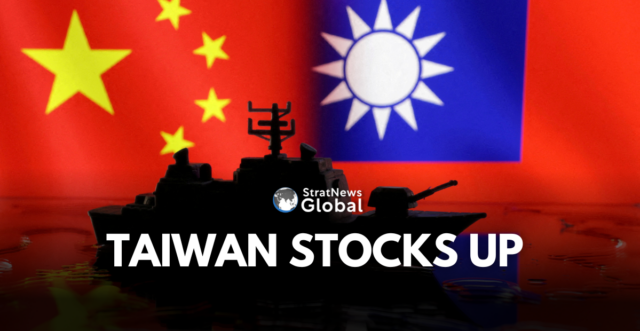Taiwan’s government provided rare insights into its wartime food strategy on Tuesday, outlining preparations in the event of a Chinese blockade. The agriculture ministry announced that it is taking monthly inventories of essential food supplies, including rice, to ensure they are properly stored across the island. This plan aims to secure food access and mitigate risks from potential Chinese military action.
Rice and Other Crucial Supplies Stockpiled
In a report to parliament, the ministry confirmed that Taiwan’s rice stockpiles exceed the legally required three-month minimum and can sustain the population for at least seven months. In case of a food crisis triggered by a blockade, the government has established plans to ration rice via supply stations throughout the island. Additionally, the ministry highlighted its efforts to diversify food production by expanding farmland for rice cultivation and prioritising crops such as sweet potatoes, soybeans, and vegetables. The use of ponds for aquaculture will also be increased to secure fish supplies, with current fish feed reserves able to last more than three months in the event of disrupted sea fishing.
Cyber Threats and Military Escalations
The National Security Bureau also presented its concerns to parliament, noting that China’s military has been intensifying its presence around Taiwan. Over the past five years, China has conducted almost daily military drills around the island, with a recent exercise simulating blockades and assaults on ports. China’s cyber forces are also increasingly targeting Taiwan’s critical infrastructure, including telecommunications, with the intent to spread misinformation and destabilise the island during potential conflicts.
The bureau reported that China has increased the frequency of “joint combat readiness patrols” near Taiwan, which occur three to four times per month. These exercises now involve more sophisticated military assets, such as aerial refuelling tankers and landing ships, signalling China’s efforts to escalate its ability to blockade Taiwan and disrupt its external sea routes.
Taiwan’s Food Self-Sufficiency and Historical Context
Taiwan, once an agricultural powerhouse during Japanese colonial rule (1895-1945), now depends heavily on food imports. This dependency grew as farmland was converted into industrial spaces during the island’s rapid economic development in the 1960s. Taiwan’s food self-sufficiency rate dropped to 30.3% in 2023, its lowest in 18 years, according to previous reports from the agriculture ministry. This has prompted the government to take additional measures to ensure food security in the face of external threats.
(With Inputs from Reuters)
Research Associate at StratNewsGlobal, A keen observer of #China and Foreign Affairs. Writer, Weibo Trends, Analyst.
Twitter: @resham_sng





